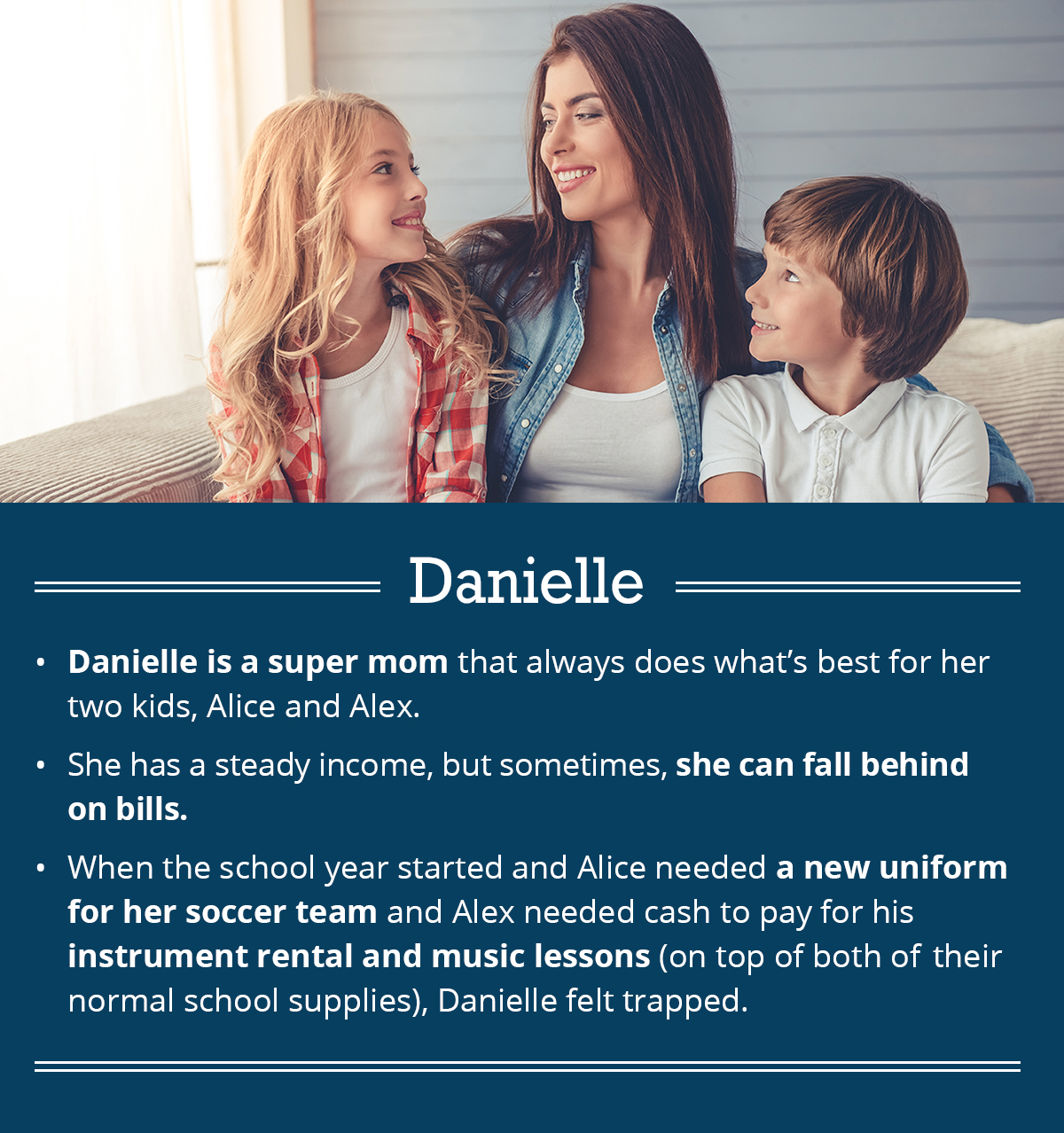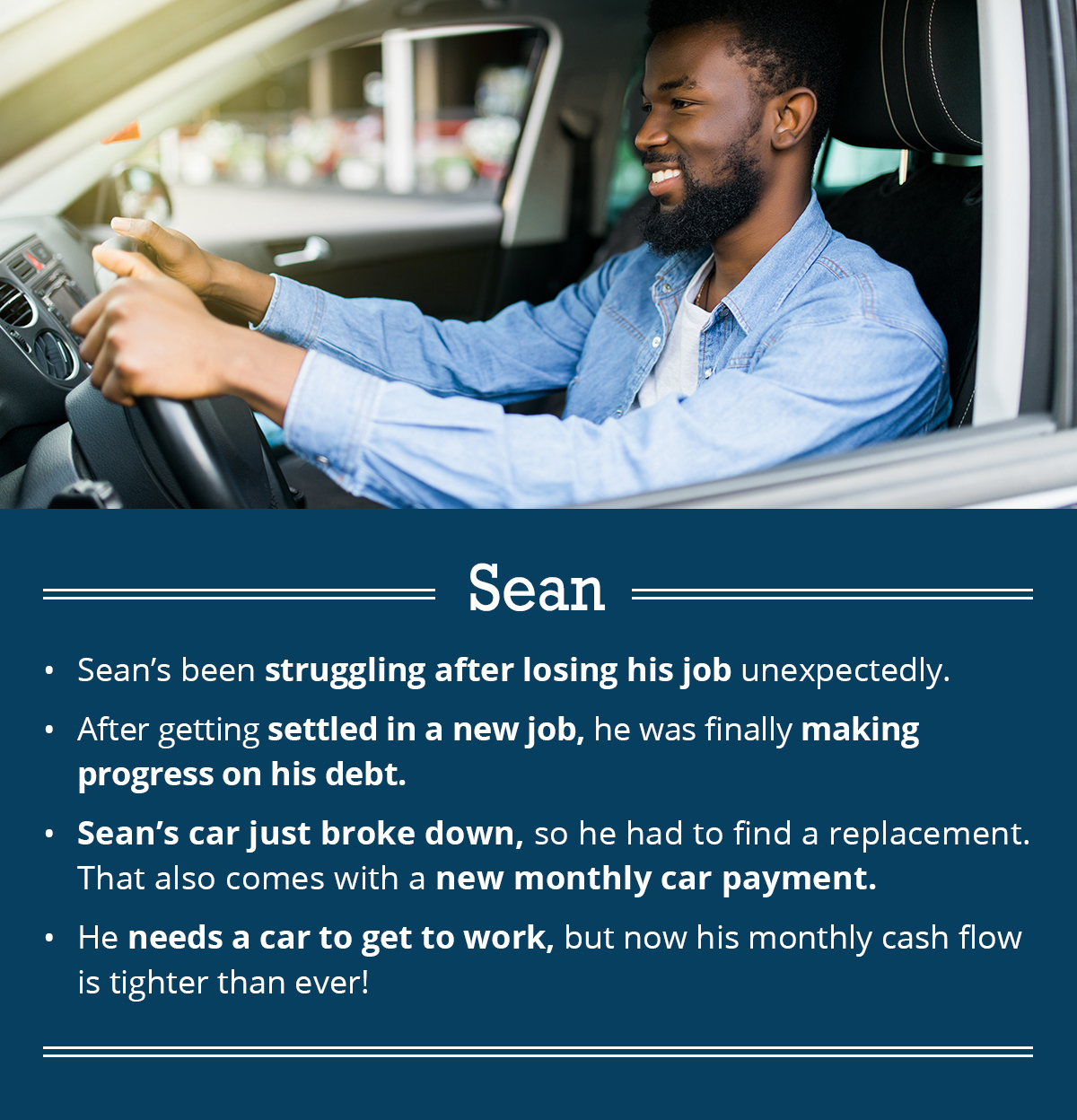Does it feel like your personal debt is stacking up? If you’re feeling overwhelmed, debt consolidation might be one option to consider. It can help you maintain a healthy cash flow while giving you extra momentum to pay down debt faster. If you want to reduce your higher interest rates or the number of bills coming in, debt consolidation can be an effective tool to help you simplify your finances.
But what exactly is debt consolidation? How does it work? When is it a good option — and when is it not? Before you consolidate your debt, it’s always a good idea to know exactly what consolidation means, and whether or not debt consolidation can help in your situation.
What is debt consolidation?
Debt consolidation is a financial strategy that combines various debts into a single loan or credit line. By combining multiple balances into one, you reduce the number of individual payments, often with a lower interest rate or more manageable terms.
Credit card balances, personal loans, private student loans and medical bills are just a few of the types of debt that people typically consolidate to avoid multiple payment due dates and interest rates. The primary goal is to streamline your financial obligations, making it easier to manage your money and reduce overall stress.
Is debt consolidation worth considering?
Consolidating your debt may be a good idea when you have:
High interest rates on multiple debts. When you move or combine higher-interest debt to a lower-interest loan or credit card, you might avoid paying extra on interest. Paying lower interest rates on fewer balances can help you to pay off your debt faster.
Variable interest rates. Planning for unexpected expenses is a lot easier when you know exactly what your monthly payments will be. When your interest rates are fixed instead of variable, your monthly payments are predictable and much easier to budget for.
Multiple payment due dates. Managing multiple payments can be confusing, not to mention it can affect your monthly cash flow at inconvenient times. Consolidating your debt into a single monthly payment can help you stay focused and reduce the risk of missed payments and late fees.
A lower credit score. In some cases, consolidating debt can improve your credit utilization and in turn, your credit score. By paying off multiple high-interest debts and maintaining a single loan, you may demonstrate responsible financial behavior and build good credit over time.
Things to consider before consolidating debt
Before jumping into debt consolidation options, there are some important things to consider:
Loan fees and costs. It’s important to understand any fees or costs associated with the process. Some consolidation options may come with loan origination fees, balance transfer fees or closing costs. Be sure to factor these expenses into your decision-making process.
Debt repayment terms. You’ll want to be aware of the repayment period and payment due dates up front. It may be a good idea to see if you can pay off debt faster with a lower-rate or fixed-rate interest. Longer loan terms may result in lower monthly payments, but you could end up paying more interest over time.
Some options, like home equity loans and home equity lines of credit (HELOC), require you to “secure” your loan amount with collateral you already have. These types of loans can be risky, because if you make late payments or miss payments altogether, you could be penalized with a lien or in extreme cases — foreclosure.
Financial discipline. Consolidating your debt is not a magic fix. It’s essential to stay focused and avoid accumulating new debt while paying off any new consolidation loan.
How to consolidate debt
Here are two of the most popular options borrowers consider when evaluating lenders to consolidate and refinance debt:
Credit Card Balance Transfers
If you carry high-interest credit card debt, one popular option is to use a 0% balance transfer credit card. If you find an offer with a low transfer fee, or no transfer fee — that’s even better. To ensure you take full advantage of a 0% balance transfer offer, it’s sometimes important that you don’t use the card to make any new purchases. You’ll also want to be sure that you can pay off your entire transferred balance amount in full before the introductory period ends and the rate resets.
Debt Consolidation Loans
Personal loans, home equity loans and even loans from specialized lenders can provide the funds needed to pay off your existing debts. These loans typically offer fixed interest rates and predictable monthly loan payments, making it easier to manage your finances.
What’s the difference between debt consolidation and debt settlement?
It’s important to recognize the difference between debt consolidation and debt settlement. Sometimes, third-party agencies will advertise debt relief products or credit counseling services and promise to “erase” your debt by negotiating with your creditors on your behalf. They might ask you to pay fees up front, or to stop making payments on your existing debt altogether. If you choose to work with a for-profit debt settlement company, it’s very important to find a reputable firm so that you don’t jeopardize your long-term credit health.
Does debt consolidation hurt credit scores?
Over time, consolidating and paying down your debt can factor into an improved credit score if you continue to make timely payments and reduce your overall credit utilization. Initially, you might see a slight dip in your credit score due to the hard inquiry that comes with applying for a consolidation loan, for example.
Your credit score varies based on your financial behavior and circumstances. It’s important to know you can always monitor your credit report to ensure there are no errors or inconsistencies affecting your credit score.
Examples of debt consolidation
Let’s examine two sample journeys through debt consolidation, and what can happen as a result. Keep in mind that these figures are only meant for illustrative purposes.

Danielle has a good credit score and qualifies for a $9,000 personal loan with a fixed 40% APR for a 6-year term and no late payment fees or penalties. Her total credit card debt is $6,000 with a 20% APR, and she also carries a $3,000 personal loan with a one-year term and a 39% APR.
Q: Should Danielle consider using her personal loan offer to consolidate her other debt? Her new monthly minimum payment would be $331.25 — lowering her monthly payment by $214.65 per month compared to the combined monthly payments she is currently making.
A: Yes, if…
- She has to find extra money each month to cover unexpected expenses.
- She avoids using higher-interest credit cards for unexpected expenses once her debt is consolidated.
- She needs more time to pay down her existing balances.

Sean has a fair credit score of 650 and qualifies for a five-year $6,000 unsecured personal loan with 50% APR from his credit union. He currently has three monthly bills which consist of a $2,000 personal loan with 50% APR and two maxed-out credit cards.
Q: Should Sean consider using his new loan offer to consolidate his three monthly bills? His new monthly minimum payment would be $273.63 — lowering his minimum payments by approximately $20 per month.
A: Yes, if…
- A single payment with a predictable, fixed interest rate will help with his tight monthly budget.
- Sean is able to avoid any new purchases on the two credit cards after they’re consolidated.
- He doesn’t foresee any major additional debts, he’ll be debt-free in five years.
How to get out of debt.
Achieving financial wellness goes beyond consolidating debt. Here are some more proven strategies that may help you reduce the amount of debt you owe:
Responsible spending habits. Having a well-structured budget ensures you’re living within your means and working toward your personal finance goals. It’s a good first step toward gaining a better view of what’s coming in and what’s going out. Keeping track of your income and expenses over time helps you to identify areas where you can cut back, so more of your income can go towards debt repayment.
The debt snowball. This debt paydown method puts momentum on your side. Using a debt snowball, you’ll focus on paying off your smallest debt first, while making minimum payments on everything else. Once your smallest debt is paid off, you shift your focus to the next smallest balance. Doing this gives you a sense of accomplishment as you pay off debts, one by one.
The debt avalanche. Using this method, you’ll make progress by paying off high-interest debts first. It requires you to make minimum payments on lower-interest debts until your highest-interest debt is paid off, moving down the hill and reducing the amount of interest you’ll pay over time.
The bottom line.
When it comes to debt consolidation, there is no one answer. Depending on your financial situation, consolidating your debt can be a powerful strategy to help you achieve excellent credit and reach your goals. When you know the pros and cons of debt consolidation, you can take advantage of lower interest rates and extended payment terms and pay off your current debt faster.
The information in this article is provided for education and informational purposes only, without any express or implied warranty of any kind, including warranties of accuracy, completeness or fitness for any particular purpose. The information in this article is not intended to be and does not constitute financial or any other advice. The information in this article is general in nature and is not specific to you the user or anyone else.
DISCLAIMER: This content is for informational purposes only and should not be considered financial, investment, tax or legal advice.






